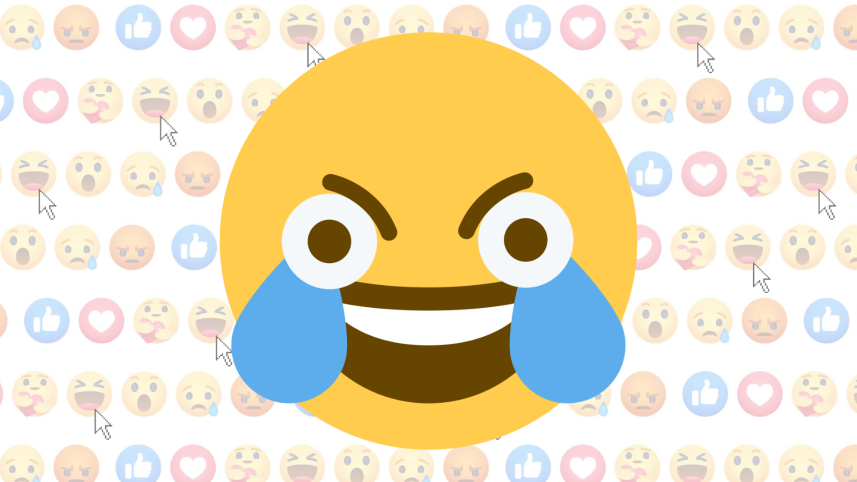The Art of Humourising Everything

A few days back, a status popped up in my feed, which had some 500+ shares and around 2000 Haha reactions. It simply said, "Neither do I have the brains nor the looks. Why do I even exist?" in Bangla, with a smiley face at the end.
There's no well-established joke or any clever multi-layered pun here. It's just straightforward mumblings of a frustrated teenager, which 2000 people found funny, if we are naive enough to take Facebook reactions seriously.
It's not the humour, however, rather its relatability that's the selling point here. We are a generation that's accustomed to laughing at our own misery and using humour as our only defence mechanism. Although using internet memes as a substitute for clinical therapy might sound like a bad decision (and probably is), discovering a crowd of people sharing the same frustration, anxiety and depression as you, works wonders.
Even 15 years back, screwing up at your academics would make you feel lonely and depressed. Now, the meme culture dedicated to ranting about our education system somehow helps get over that frustration.
Things get a bit problematic when we relocate from this relatability factor of ranting through "shitposting" and consider it to be more of a responsibility. It starts with the recognition as an "internet memer" and a shot at social media validation. At some point, ideas stop coming. Yet, you can't. You have an imaginary quota to fill and social media points to gain. And then it happens – you cross the line. The invisible line of humour that separates "just a dank joke" from "plain offensive" and the line with which we tend to skip rope.
Where do you draw this line? Is there a line to begin with? If so, then who chooses where to draw it?
No matter how offensive something might seem to you, there's always an audience for that sick joke somewhere in this creepy wonderland. Is it truly insensitive of him or is it your threshold of tolerance that's a bit too low? On the internet, you can make the most politically correct joke about three polar bears entering a bar and yet trigger someone enough to get cancelled. If we do take everyone's sensitivity into account, the glorious culture of self-deprecating millennial humour will lose its charm. It's all just a loop of questions with no definitive answer.
But does that snatch away our self-proclaimed right of making fun of our own tragedy? It doesn't. You can crack a joke about our national misery but not the victims of that misery. A joke about our poverty, weak financial infrastructure, unsafe streets and sickening culture of extortionist capitalism? Sure. One about a homeless guy who lost his everything due to the pandemic and died in a car crash? NO.
Humour has no grand pious intention. It cannot start a revolution, topple a dictator, or reshape the world order. It's simply how we choose to dump our frustration by laughing at our own tragedy. As victims, if not humour as our only language, then what? Reaching out for professional help, constructive criticism or protest for changes, just like in the old days?
How lame.
Remind Ifti to be quieter at hasiburrashidifti@gmail.com
 For all latest news, follow The Daily Star's Google News channel.
For all latest news, follow The Daily Star's Google News channel.